detail profile hisashi igawa

Hisashi Igawa
Хисаси Игава
atau dikenal sebagai
Riwayat Hidup
From Wikipedia, the free encyclopedia
Hisashi Igawa (井川比佐志 born 17 November 1936) is a Japanese actor who has appeared in such films as Akira Kurosawa's Dodesukaden, Ran and Madadayo.
He starred in Abe Kōbō's production of The Man Who Turned Into A Stick, a surrealist play, in 1969.
Info Pribadi
Peran Yang Di Mainkan Hisashi Igawa
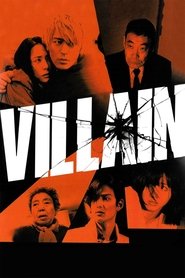 Shimizu Yuichi is a shy and...
Shimizu Yuichi is a shy and...Villain 2010
Shimizu Yuichi is a shy and lonely day laborer looking for love. He aimlessly spends time corresponding with girls via telephone dating services and going on random encounters with girls looking for spending cash. His world is shattered one day when he is involved in the murder of one of his former encounters, the sweet-faced Ishibashi Yoshino who, after being jilted by playboy Masuo Keijo, berates and mocks the troubled loner.
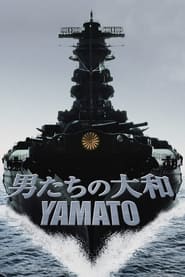 Directed by Junya Sato and based...
Directed by Junya Sato and based...Yamato 2005
Directed by Junya Sato and based on a book by Jun Henmi, "Yamato" has a framing story set in the present day and uses flashbacks to tell the story of the crew of the World War II Japanese battleship Yamato. The film was never released in the United States, where reviewers who have seen it have compared the military epic to "Titanic" and "Saving Private Ryan."
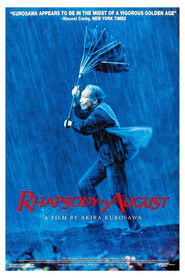 The story centers on an elderly...
The story centers on an elderly...Rhapsody in August 1991
The story centers on an elderly hibakusha, whose husband was one of 80,000 human beings killed in the 1945 atomic bombing of Nagasaki, caring for her four grandchildren over the summer. She learns of a long-lost brother, Suzujiro, living in Hawaii who wants her to visit him before he dies.
 Masaki a baseball player and gasstation...
Masaki a baseball player and gasstation...Boiling Point 1990
Masaki, a baseball player and gas-station attendant, gets into trouble with the local Yakuza and goes to Okinawa to get a gun to defend himself. There he meets Uehara, a tough gangster, who is in serious debt to the yakuza and planning revenge.
 In this humorous paean to the...
In this humorous paean to the...Tampopo 1985
In this humorous paean to the joys of food, a pair of truck drivers happen onto a decrepit roadside shop selling ramen noodles. The widowed owner, Tampopo, begs them to help her turn her establishment into a paragon of the "art of noodle-soup making". Interspersed are satirical vignettes about the importance of food to different aspects of human life.
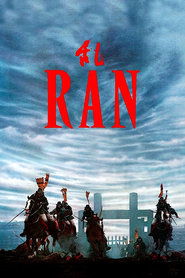 With Ran legendary director Akira Kurosawa...
With Ran legendary director Akira Kurosawa...Ran 1985
With Ran, legendary director Akira Kurosawa reimagines Shakespeare's King Lear as a singular historical epic set in sixteenth-century Japan. Majestic in scope, the film is Kurosawa's late-life masterpiece, a profound examination of the folly of war and the crumbling of one family under the weight of betrayal, greed, and the insatiable thirst for power.
 In the summer of 1941 the United...
In the summer of 1941 the United...Tora! Tora! Tora! 1970
In the summer of 1941, the United States and Japan seem on the brink of war after constant embargos and failed diplomacy come to no end. "Tora! Tora! Tora!", named after the code words used by the lead Japanese pilot to indicate they had surprised the Americans, covers the days leading up to the attack on Pearl Harbor, which plunged America into the Second World War.
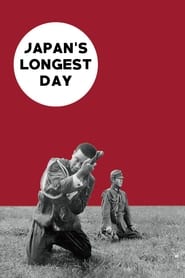 Following the detonation of the atomic...
Following the detonation of the atomic...Japan's Longest Day 1967
Following the detonation of the atomic bombs on Hiroshima and Nagasaki, the Japanese military and the government clash over the demand from the Allies for unconditional surrender. Minister of the Army Anami leads the military officers who propose to fight on, even to the death of every Japanese citizen. Emperor Hirohito, however, joins with his ministers in asking the unthinkable, the peaceful surrender of Japan. When the military plots a coup to overthrow the Emperor's civilian government, Anami must face the choice between his desires and loyalty to his Emperor.
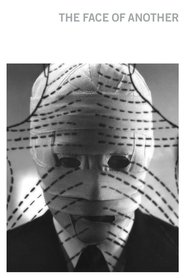 A businessman with a disfigured face...
A businessman with a disfigured face...The Face of Another 1966
A businessman with a disfigured face obtains a lifelike mask from his doctor, but the mask starts altering his personality.
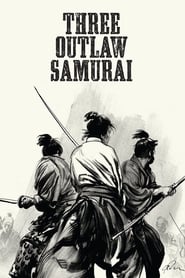 Shiba a wandering ronin encounters a...
Shiba a wandering ronin encounters a...Three Outlaw Samurai 1964
Shiba, a wandering ronin, encounters a band of peasants who have kidnapped the daughter of their dictatorial magistrate, in hopes of coercing from him a reduction in taxes. Shiba takes up their fight, joined by two renegades from the magistrate's guard, Sakura and Kikyo. The three outlaws find themselves in a battle to the death.
 Downonhisluck veteran Tsugumo Hanshir enters the...
Downonhisluck veteran Tsugumo Hanshir enters the...Harakiri 1962
Down-on-his-luck veteran Tsugumo Hanshirō enters the courtyard of the prosperous House of Iyi. Unemployed, and with no family, he hopes to find a place to commit seppuku—and a worthy second to deliver the coup de grâce in his suicide ritual. The senior counselor for the Iyi clan questions the ronin’s resolve and integrity, suspecting Hanshirō of seeking charity rather than an honorable end. What follows is a pair of interlocking stories which lay bare the difference between honor and respect, and promises to examine the legendary foundations of the Samurai code.
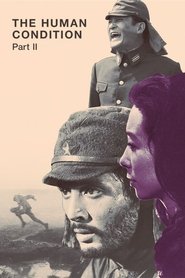 Kaji is sent to the Japanese...
Kaji is sent to the Japanese...The Human Condition II: Road to Eternity 1959
Kaji is sent to the Japanese army labeled Red and is mistreated by the vets. Along his assignment, Kaji witnesses cruelties in the army and revolts against the abusive treatment against the recruit Obara. He also sees his friend Shinjô Ittôhei defecting to the Russian border, and he ends in the front to fight a lost battle against the Russian tanks division.
 The Masters latenight diner welcomes a...
The Masters latenight diner welcomes a... A young piano prodigy Yuri Kashiwagi...
A young piano prodigy Yuri Kashiwagi...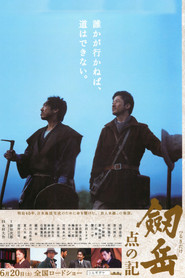 In 1907 a group of men climb...
In 1907 a group of men climb... Based on the life of Hyakken...
Based on the life of Hyakken...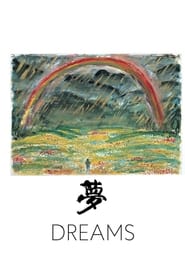 A collection of magical tales based...
A collection of magical tales based... The tragic true story about Hachik...
The tragic true story about Hachik... A man wanders into a seemingly...
A man wanders into a seemingly...